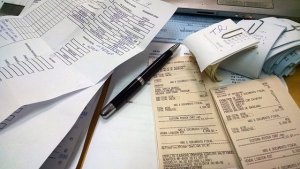For many accountants, the months leading up to the April IRS deadline can be a whirlwind of stress and long hours. Often you have clients who waited until the last minute to provide the necessary documentation you need to get their taxes done in a timely manner. However, with some last-minute tips and tricks, you can make sure that you are prepared and ready to file these particular clients' taxes as close to the deadline as possible without them being penalized.
Whether you're a seasoned accountant or just starting out, there are a few key things to keep in mind as the IRS deadline approaches. From double-checking everything to communicating with your clients, staying organized, and using tax software, these tips can help you stay on track and ensure that you're providing the best possible service to your clients.
In this article, we'll share some last-minute tips, covering everything from knowing the deadlines to recent tax law changes, reviewing previous years' returns, and most importantly, taking care of yourself. By following these tips, you can make tax season a little less daunting and a little more manageable. So, let's get started!
- Know Your Deadlines
While the April 15th deadline is the most well-known tax deadline, there are other deadlines that you need to be aware of. For example, if your client is self-employed, they may need to make estimated tax payments throughout the year. As well as this, if you have multiple clients you’ve likely already set personal deadlines to help keep yourself on top of your work. Be sure to stick to these deadlines to minimize stress and leave enough time for final checks.
- Communicate with Your Clients
Communication is key during tax season. Make sure that you are regularly communicating with your clients, whether that's through email, phone, or in-person meetings. If you have any questions or concerns about your clients' taxes, it’s always best to reach out to them and ask for clarification. It's better to have all the information you need upfront, rather than having to go back and make changes later or risk penalties for incorrect returns. Consistent communication will help you stay on top of any changes in clients’ financial situations and ensure that you are providing the best service possible.
- Stay Organized
Staying organized is crucial during tax season. That means organizing your paperwork, files, and documents ahead of time so that you know exactly what needs to be filed. Make sure you have a system in place that works for you, whether that's a digital system or a physical filing system. This will help you stay focused, work quickly and avoid any mistakes. You don't want to be left reeling as the deadline approaches trying to find missing documents or information. If you find yourself procrastinating or panicking in these last few days, take a few moments to reorganize and clear your workspace.
- Know Your Deductions
Knowing your deductions is essential during tax season. Make sure that you are familiar with all the deductions and credits that your clients may be eligible for. This can help you maximize their tax savings and ensure that they are not missing out on any potential benefits. Although tax season is a stressful time, you can still impress your clients and keep them coming back for years to come.
- Stay Up-to-Date
Tax laws and regulations are constantly changing, so it's important to stay up-to-date on any new developments. Make sure that you are aware of any changes that may impact your clients' taxes and that you are taking them into account when preparing their returns. For example, the standard deduction has increased to $27,700 in 2023 for married couples filing jointly. There will also be an increase for single filers, who may claim $13,850, $900 more than last year. Keeping on top of these changes will ensure that you are providing accurate advice to your clients and taking advantage of any new tax breaks or deductions that may be available.
- Review Previous Years' Returns
Take some time to review your clients' documentation, most importantly their previous years' tax returns. This can help you identify any recurring issues or problems, such as missed deductions or errors. It can also highlight potential changes in your client's financial situation that may affect their taxes.
- Double-Check Everything
Before you file your clients' taxes, it's essential to double-check everything. This is the last chance you’ll have to make sure that all the numbers are correct and that you haven't missed any deductions or credits. Double recordings are another common mistake that can be easily avoided with a thorough re-check. Even a small mistake like this can result in penalties or additional taxes owed, so it's crucial to take the time to review your work carefully. Remember to always back up your work after every draft!
- Use Tax Software
If double-checking isn’t good enough for you, tax software can be a valuable tool during tax season. This software can help you prepare and file taxes more efficiently and accurately, and it can also help you identify any potential issues or errors in your workings. Plus, if you struggle to keep on top of things, constantly tidying your desk or searching for that one document that seems to evade you, accounting software can be a simple way to organize all the important information you’ll need over the next few days. If you're not already using tax software, it's worth considering.
- Take Advantage of Tax Season Deals
Although it may be a little late for accounting software to help with this tax season, some software providers and tax preparation services often offer deals or discounts during tax season. Be sure to take advantage of these offers and get the best value for your money, so you can utilize tax software during next year’s crush.
- Know the Signs of Procrastination
Procrastination is a common problem during tax season. It's easy to put things off until the last minute, but this can lead to additional stress and mistakes. If you’re prone to procrastinating when things get too stressful, make sure that you are aware of your triggers and can nip any procrastination in the bud. If procrastination seems unavoidable, it may be time to take a break and re-center yourself.
- Take Breaks
Speaking of breaks, while it may be tempting to work non-stop during tax season, it's important to take some time out now and again. Taking short breaks throughout the day can help you stay focused and productive, and it can also help you avoid burnout and other long-term issues.
- Be Prepared for Extensions
Sometimes, despite your best efforts, you may not get all the information you need on time and will have to file for an extension. Make sure that you are prepared for this possibility and that you are aware of the deadlines for filing extensions. Although it’s often avoidable, it’s much better to file for an extension than to rush through the filing process and make mistakes.
- Consider Outsourcing
If you're feeling overwhelmed with the amount of work you have to do, why not consider outsourcing some of it? Whether this be by checking in with others at your practice and seeing if they can help, or hiring an external aide. You can outsource tasks like data entry, bookkeeping, or even tax preparation to a qualified freelancer or another professional. This can help you save time and reduce your workload but does require some planning and coordination. If you find yourself with extra time, check in with your colleagues and see if there’s any way you can assist them with their workload, too.
- Don't Forget About State and Local Taxes
While federal taxes may be your primary focus during tax season, it's important not to overlook state and local taxes. Make sure that you are familiar with the tax laws in your state and any local municipalities where your clients reside. This will help you avoid costly mistakes and ensure that your clients are in compliance with all tax laws.
- Prepare for Audits
While audits are rare, they can happen. Make sure that you are prepared in the event that one of your clients is audited. Keep detailed records and documentation to support your clients' 2023 tax returns, and make sure that you are available to provide a timely response to any audit requests.
- Take Care of Yourself
Finally, it's important to take care of yourself during tax season. Long hours, tight deadlines, and high-stress levels can take a toll on your physical and mental health. Make sure that you are taking regular breaks, getting enough sleep, eating healthy, and socializing or engaging in stress-relieving activities. A healthy work/life balance will allow you to maintain a positive attitude during tax season. While it can be stressful and overwhelming, remember that you are helping your clients navigate a complex and confusing process. Focus on the positive impact you're having and celebrate your successes along the way.
Sources
- https://tax.thomsonreuters.com/blog/how-to-survive-tax-season/
- https://synder.com/blog/tax-season-2021-5-survival-tips-for-busy-accountants/
- https://www.gobankingrates.com/taxes/filing/tips-last-minute-tax-filing/
- https://online.maryville.edu/blog/the-critical-importance-of-business-communication-in-the-field-of-accounting/
- https://skynarbookkeeping.com/blog/double-check-your-bookkeeping-in-these-five-ways
- https://www.top10.com/tax-software/top-10-advantages-of-using-tax-software
- https://www.cnbc.com/2023/03/06/inflation-boosted-the-2023-federal-income-tax-brackets.html
- https://www.acecloudhosting.com/blog/accountants-can-overcome-procrastination/
- https://www.forbes.com/sites/forbesfinancecouncil/2022/03/25/four-tips-for-accountants-to-beat-burnout/?sh=1ec8b6c859a6
- https://www.volopay.com/blog/benefits-of-outsourcing-accounting-services/
- https://money.usnews.com/money/personal-finance/articles/understanding-federal-vs-state-vs-local-taxes





















Add comment